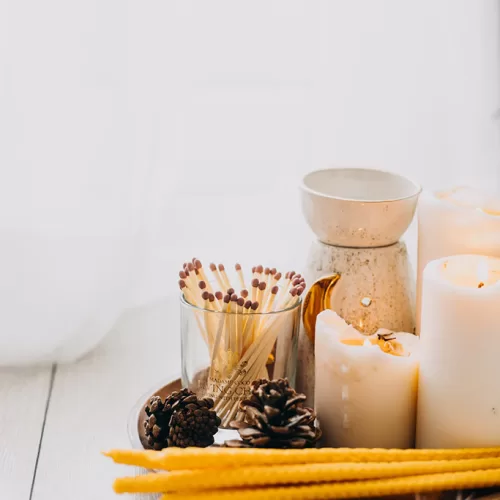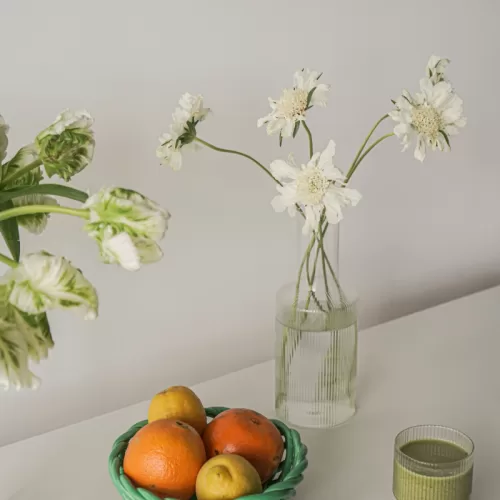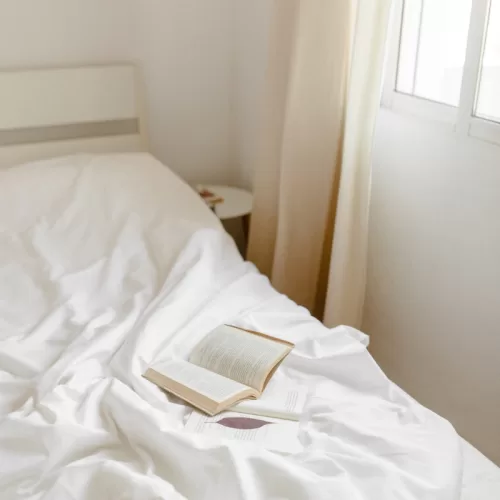As the vibrant hues of autumn begin to emerge too do the allergies that come with the season causing discomfort, for individuals. If you notice yourself reaching for tissue boxes frequently than usual it might be an idea to find relief from fall allergies. These irritating allergens, such as pollen and mold spores brought about by weather can certainly put a damper on the joys of this time of year. However by employing strategies and treatments you can minimize the impact of fall allergies. Fully enjoy the beauty that the season has to offer.

Stay tuned as we delve into a range of tips designed to provide you with needed relief. From making lifestyle adjustments, to implementing allergy management techniques we’ll help you bid farewell to constant sneezing fits and itchy eyes so that you can fully embrace everything that fall has in store. It’s time to reclaim the air enchanting foliage and all the wonders that autumn brings without being burdened by allergies weighing you down.
Understanding Fall Allergies
Fall allergies occur due, to allergens that’re commonly present during the autumn season. One of the culprits for triggering allergic reactions is ragweed pollen, which can travel long distances. Another allergen mold spores, thrives in environments like piles of leaves and decaying vegetation. It’s important to understand these triggers so that you can effectively manage fall allergies and minimize their impact on your life.
When your immune system reacts to these allergens it can lead to symptoms such, as sneezing, itchy or watery eyes, nasal congestion and even worsen asthma. However with the approach fall allergies don’t have to be overwhelming. By taking measures you can greatly reduce their impact. Fully enjoy the season.
Common Fall Allergens
During the autumn season there are allergens that’re present, which contribute to the prevalence of allergies. One such allergen is ragweed, a type of flowering plant that can be found abundantly throughout the United States. Ragweed releases pollen, into the air causing reactions in people. Another common culprit is mold spores, which thrive in humid conditions. They are especially prevalent in areas where there is decaying vegetation or indoor environments with high moisture levels. Additionally dust mites, pet dander and insect stings can also play a role in triggering fall allergies.
Having knowledge about these fall allergens is crucial, for developing strategies to manage and alleviate allergic symptoms. By identifying the triggers individuals can take measures to minimize their exposure and reduce the impact of fall allergies on their daily lives.
Symptoms of Fall Alergies
Fall allergies can cause a range of symptoms, which can vary in severity. Common signs include sneezing, stuffy or itchy nose, watery or itchy eyes coughing and postnasal drip. It’s important to identify these symptoms on for intervention and effective management of fall allergies. By recognizing the signs of reactions individuals can take measures to reduce their exposure to allergens and seek appropriate treatment to relieve their symptoms.
Tips for Managing Fall Allergies
Managing fall allergies requires an approach that involves making changes, to your lifestyle controlling your environment and using targeted treatments. There are steps you can take like keeping your windows closed when pollen levelsre high using air purifiers with HEPA filters and regularly cleaning and vacuuming your home to reduce allergens. It’s also important to practice nasal hygiene by using saline nasal sprays to rinse out allergens from your nose and using covers that are specifically designed to prevent allergen exposure. Avoiding triggers, such as activities, during times of pollen counts can also play a significant role in effectively managing allergies.
Natural Remedies for Fall Allergies
Natural remedies can provide relief from autumn allergies without the side effects that come with medications. One effective method is irrigation using saline solutions to clear the passages and alleviate congestion. Some people believe that consuming honey, which may contain amounts of pollen can help desensitize the body to allergens and reduce symptoms.
In addition incorporating inflammatory foods, like turmeric, ginger and omega 3 fatty acids into your diet has the potential to reduce allergic inflammation. Herbal supplements such, as butterbur and stinging nettle may also offer relief from allergy symptoms. However it’s important to consult with a healthcare before incorporating these remedies into your allergy management plan.
Over-the-Counter Medications for Fall Allergies
If you’re dealing with fall allergy symptoms and need relief there are, over the counter medications that can help. You can find antihistamines in either nasal spray forms, which’re great for relieving sneezing, itching and a runny nose. Decongestants are also available to help with congestion while nasal corticosteroids work well in reducing inflammation in the passages and providing long term relief from allergic symptoms.
It’s crucial to follow the dosage instructions and consult a healthcare provider especially if you’re combining over the counter medications. Understanding side effects and how these medications may interact is essential, for their effective use.
When to See a Doctor for Fall Allergies
While many people can effectively handle their fall allergies by making lifestyle changes and using, over the counter remedies there are cases where medical intervention may be necessary. If the symptoms of fall allergies persist despite these efforts or if they significantly impact your activities and overall well being it is advisable to seek medical advice.
Furthermore individuals with health conditions such as asthma should consult a healthcare provider, for management strategies. Conducting allergy tests can help identify triggers, which will enable targeted treatment approaches. Healthcare professionals can also prescribe medication. Recommend immunotherapy (allergy shots) for those who suffer from persistent fall allergies.
Fall Allergy Prevention Tips
Preventing allergies during the fall requires steps to minimize exposure, to allergens. Decrease the chances of experiencing allergic reactions. It’s important to keep spaces clean and free from dust, mold and pet dander much as possible in order to reduce allergen exposure. Additionally regularly changing air filters in heating and cooling systems can contribute to air quality.
When you’re outside during peak pollen seasons wearing sunglasses to shield your eyes and taking a shower and changing clothes once you return indoors can help remove allergens from your body. Prevent them from spreading inside. It’s also beneficial to keep an eye, on pollen counts so that you can plan activities accordingly in order to further minimize your exposure to allergens.
Fall Allergy-Friendly Activities
Despite the challenges that fall allergies there are still plenty of activities to partake in during this season. Of spending time where allergens can be troublesome consider exploring indoor spaces, like art galleries, museums or indoor markets. These places offer a respite from allergens. Allow you to indulge in cultural experiences. Additionally you can still enjoy the beauty of the season by engaging in activities during times when pollen counts are low such, as early mornings or after rainfall. This way you can appreciate the wonders of autumn without experiencing discomfort.
Furthermore embracing fall activities that won’t worsen your allergies can be a way to fully embrace the season while keeping yourself comfortable. For instance consider apple or pumpkin picking in areas that’re less likely to expose you to allergens. This allows you to enjoy experiences without compromising your well being. By choosing allergy activities you can fully immerse yourself in the splendor of fall while minimizing any allergic reactions.






